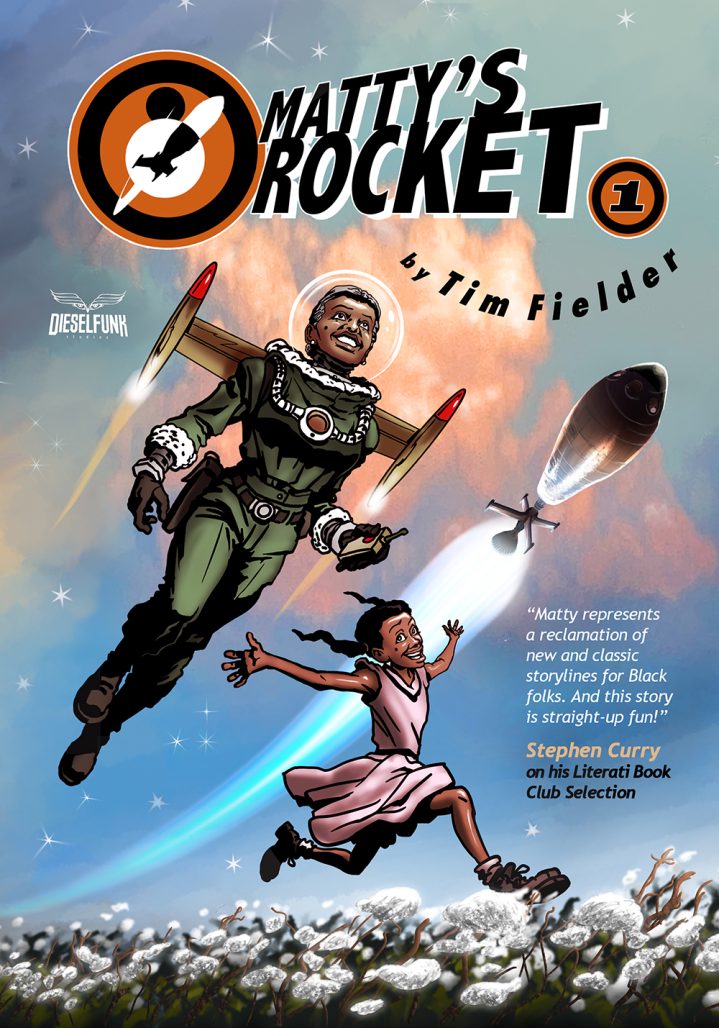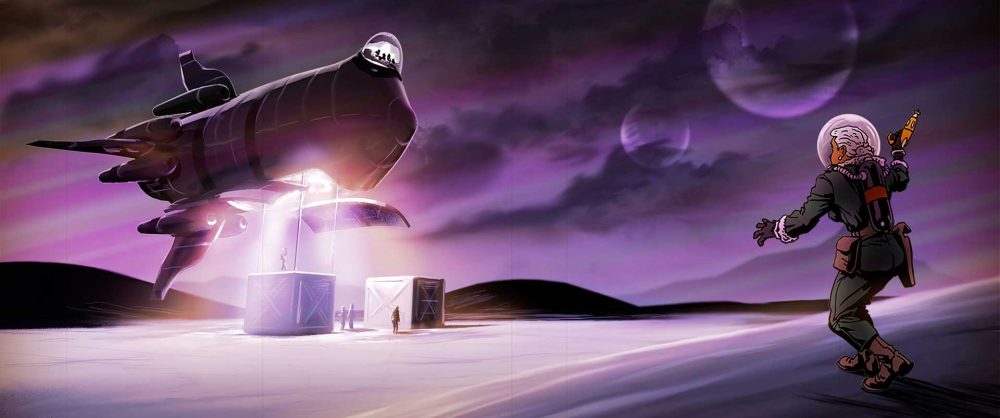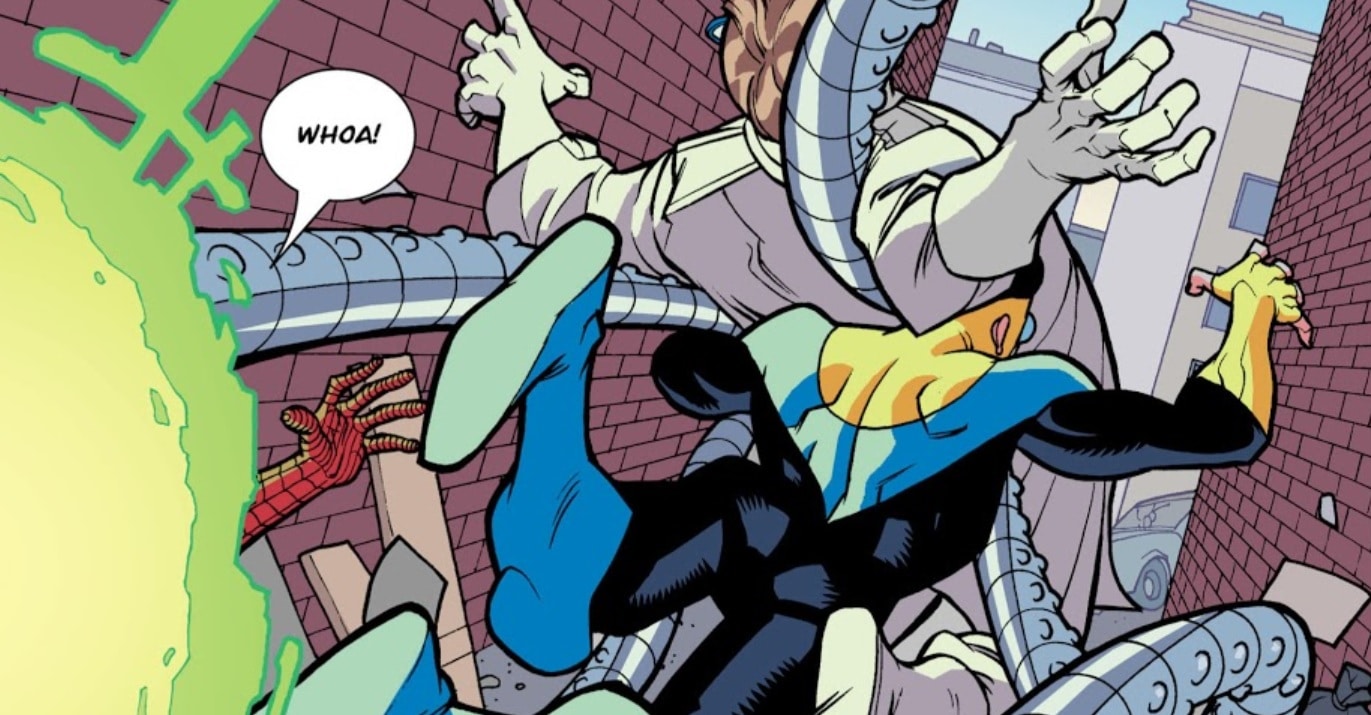 Matty’s Rocket
Matty’s Rocket
Writer/Illustrator: Tim Fielder
Publisher: Dieselfunk Studios
In claiming spaces for representation, it’s not always necessary to reinvent the wheel or come up with entirely new ways to foster visibility. Sometimes, taking on tradition and bending it to the will of diversity is brave enough. In fact, it might even be a more difficult task in some regards, being that traditions abhor change.
Matty’s Rocket, written and illustrated by Tim Fielder (Infinitum), is a confident example of the above, a comic that breaks new ground in well-trodden science fiction territory using some of the same tools the genre’s known for in the process.
Matty’s Rocket follows Matty Dolores Watty, a towering Black female figure in alternate history America that revolutionized interstellar shipping and rocket ship transport. The story explores Matty’s childhood, her trajectory as a rocket pilot, and her role as a business titan in the later stages of her life.
Fielder offers glimpses of a War of the Worlds-type alien invasion that turned Earth upside down as part of Matty’s life story, an invasion that pretty much follows in the footsteps of H.G. Wells sci-fi classic. In a surprising but clever way, much of what transpires during that conflict is left to the readers’ imagination, more as a hint of what would advance America’s technological innovations after it and the development of its space travel capabilities as it pertains to Matty’s role in it.
The book fully embraces the classic sci-fi notion of barrier breaking, of contemplating how the concept of progress alters our views on life and human existence. It was common to see examples of this this type of storytelling in 1950s and 1960s works of sci-fi, where the discovery of new tech or new life forms changes the way we perceive and experience reality. In Isaac Asimov’s I, Robot (1950), for instance, robotics represented such a grand and innovative expansion of our social structures that it necessitated its own rules and laws. The impact was so massive that imagination had no choice but to broaden its scope to account for these developments.
There’s a lot of that in Matty’s Rocket, a desire to think and aim big, to imagine tomorrow. Its vision is one of humanity’s growth through the perspective of a Black woman who decided not to settle with just making it. Matty sees every facet of her life in terms of expectations and drawing the goal line further to surpass them each time. That the comic explores this so well using early sci-fi story elements feels like a firm challenge to tradition that makes space for representation rather than create an entire new designation for it. It’s an admirable endeavor that results in a celebration of human ingenuity from a more welcoming and inclusive perspective.
Fielder’s art also accounts for this grander sense of vision in exploring what America could’ve been had it embraced its diversity sooner, all while simultaneously asking whether the America of Matty’s Rocket still has a shot at materializing. Each page paints Matty and her America as driven by the prospect of discovery. There’s a force to each panel that feels both celebratory and dangerous. It’s not lost upon Matty that her experience was shaped by the Jim Crow laws and the “separate but equal” South. Fielder makes sure the reader is aware of it enough to contextualize the character’s meteoric rise to rocket travel innovator.
At its heart, Matty’s Rocket is first about a woman that changed the face of space travel in an alternate history America. The racism that she faced was a fact of life. It’s just not allowed to become the defining characteristic of her story. The change she enacts in the field of space travel plays that role well enough on its own.
It’s quite clear that Tim Fielder wanted Matty’s Rocket to find a home in the same kind of sci-fi that we think about when names such as Asimov, Ray Bradbury, and Arthur Clark are mentioned. He ends up evoking those giants in his comic, drawing a clear line between their influences and the need for more visibility, especially in the realm of racial representation. As such, Matty’s Rocket is an ode to both imagination and reimagination, and it stands as one of the best modern examples of classic sci-fi on the stands today.
Matty’s Rocket is available now.



 Matty’s Rocket
Matty’s Rocket






